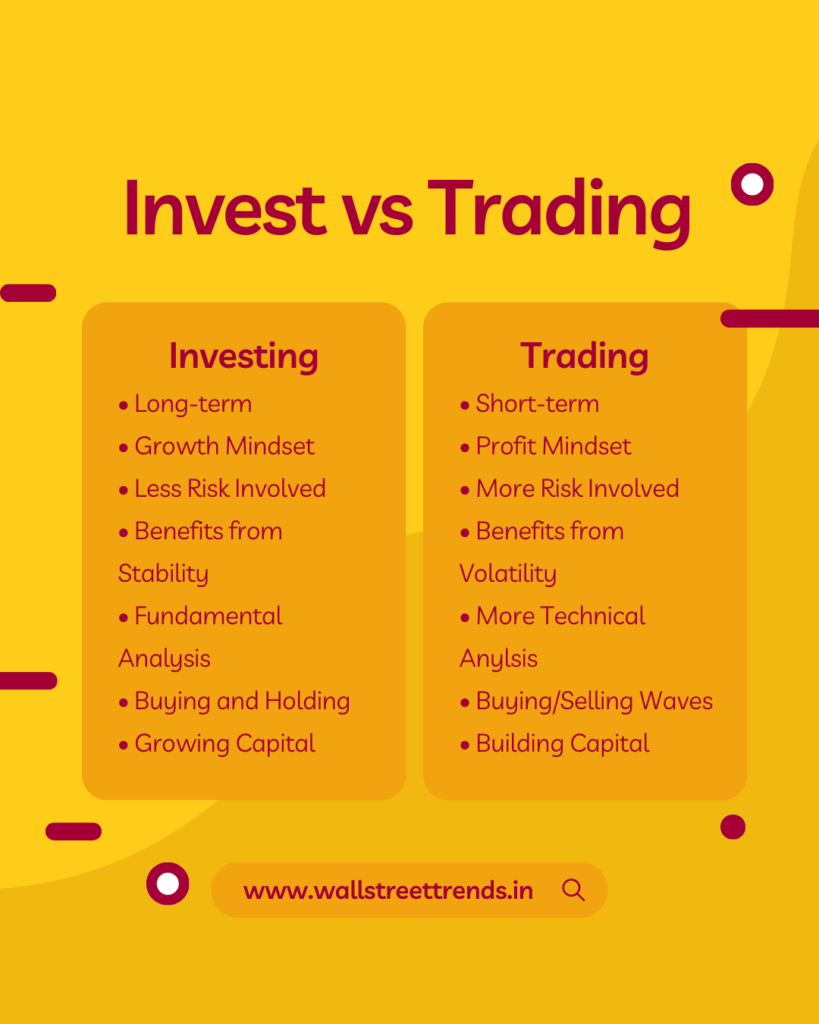Table of Contents
Recommended For You
Small cap mutual funds have gained significant popularity among investors in recent years. The potential for high returns and rapid growth has made them an attractive investment option. For example, Nippon India Small Cap Fund delivered nearly 60% returns in the past year. However, with high returns comes high risk, and this trend is not guaranteed to continue in the future. This article will discuss how small cap mutual funds work, their risks, opportunities, and other key aspects to provide investors with a balanced perspective.
What Are Small Cap Companies?
Small cap companies are generally smaller and emerging businesses with a market capitalization (market cap) of less than ₹5,000 crore. According to the Securities and Exchange Board of India (SEBI), the top 100 companies are classified as large caps, companies ranked 101 to 250 are mid caps, and companies ranked below 250 fall into the small cap category. These companies are in the early stages of development, with significant growth potential.
One of the defining characteristics of small cap companies is that they often operate in new and evolving industries, offering the potential for high growth. However, the risk of losses remains due to market volatility and the unpredictability of these smaller firms.
How Do Small Cap Mutual Funds Work?
Small Cap Mutual Funds are a type of equity mutual fund that primarily invests in small-cap companies. These funds focus on smaller companies with high growth potential but also come with significant risk. To fully understand how they work, it’s essential to explore their structure, investment approach, and the potential advantages and risks involved.
1. Investment in Small Cap Companies
Small-cap mutual funds are required by SEBI (Securities and Exchange Board of India) to invest at least 65% of their total assets in small-cap companies. These companies are typically ranked beyond the top 250 by market capitalization. In India, a small-cap company is defined as one having a market capitalization of less than ₹5,000 crores.
Key Characteristics of Small Cap Companies:
- Early Growth Stage: Small-cap companies are usually in the early or growth phases of their business lifecycle. They may not have the established market presence or revenue stability that larger companies (like large-caps or mid-caps) do, but they have high growth potential.
- Undervalued or Unrecognized: Many small-cap companies are relatively unknown to large institutional investors, and their stocks may be undervalued. These companies have room to grow if they expand their operations successfully.
- Industry Pioneers: Some small-cap firms operate in niche or emerging industries, offering unique products or services. This can result in rapid stock price appreciation if the industry performs well.
2. Role of Fund Managers
Fund managers play a crucial role in small cap mutual funds. Since small-cap stocks can be volatile and are not as well-known or researched as larger companies, the fund manager’s ability to choose the right companies is critical.
Key Responsibilities of Fund Managers:
- Research and Analysis: Fund managers extensively research small-cap companies, studying their business models, financials, and growth prospects. They aim to identify companies that are undervalued but have the potential for rapid growth.
- Portfolio Construction: After thorough research, fund managers create a diversified portfolio of small-cap stocks, ensuring that the investments are spread across different sectors to minimize risk.
- Active Management: The fund manager actively monitors the market conditions and the performance of the companies in the portfolio. They may adjust the portfolio by buying or selling stocks based on changing circumstances or emerging opportunities.

3. Risk and Volatility
Small-cap mutual funds tend to be more volatile than large-cap or mid-cap mutual funds due to the nature of the companies they invest in. These companies are often more sensitive to economic conditions, market sentiment, and industry-specific risks.
Why Small Cap Stocks Are Volatile:
- Limited Resources: Small companies often have limited resources compared to large corporations. A small change in market conditions or competitive pressures can significantly impact their earnings.
- Low Liquidity: Small-cap stocks are generally less liquid than large-cap stocks, meaning there are fewer buyers and sellers in the market.
- Market Sentiment: Small-cap stocks are highly sensitive to market sentiment. Positive news can drive their prices up quickly, while negative news can lead to significant declines.
4. Potential for High Returns
While small-cap mutual funds come with higher risks, they also offer the potential for higher returns. Since small-cap companies have more room to grow compared to large established companies, their stock prices can appreciate significantly over time. For example, if a small-cap company successfully scales its business or captures a large market share, the value of its stock can multiply.
Long-Term Growth:
Small-cap mutual funds are often seen as a good option for long-term investors because they allow investors to benefit from the growth of emerging companies. Historically, investors who have held small-cap funds for long periods (5-10 years) have been rewarded with higher returns compared to other equity mutual funds.
5. Investment Horizon and Suitability
Small-cap mutual funds are more suited for investors with a long-term investment horizon and a higher risk tolerance. Short-term market fluctuations can be severe, so these funds are ideal for those who can remain invested for 5-7 years or more. Over time, the volatility may smooth out, and the potential for higher returns can be realized.
Ideal Investor Profile:
- Risk-Tolerant: Investors should be comfortable with market volatility and be prepared for potential short-term losses.
- Long-Term Focus: Investors need to be patient and maintain a long-term perspective to allow small-cap stocks to grow.
- Diversification in Portfolio: Small-cap mutual funds should be part of a diversified portfolio. Investors should also have exposure to large-cap and mid-cap funds to balance their risk.
6. Diversification in Small Cap Mutual Funds
One of the key advantages of investing in small cap mutual funds is that they offer diversification within the small-cap space. Instead of investing in one or two small-cap stocks, the fund invests in a large number of small-cap companies from various sectors, reducing the risk associated with individual companies.
7. How Returns Are Generated
Returns in small-cap mutual funds come from two primary sources:
- Capital Appreciation: As the small-cap companies in the portfolio grow and their stock prices increase, investors benefit from capital appreciation.
- Dividends: Some small-cap companies pay dividends to their shareholders, which can add to the overall returns of the fund, though dividends are typically less common in small-cap companies compared to large caps.
8. Expense Ratio
Like all mutual funds, small-cap mutual funds come with an expense ratio, which is the fee charged by the fund house for managing the fund. Due to the active management and research involved in selecting small-cap stocks, the expense ratio for these funds may be higher compared to large-cap or index funds.
9. Exit Load
Small-cap mutual funds may also charge an exit load, which is a fee for redeeming or selling the fund units before a specific period (usually 1-2 years). This encourages investors to stay invested for the long term, aligning with the long-term nature of small-cap investments.

Advantages of Small Cap Mutual Funds
- Potential for High Returns: One of the main reasons for investing in small cap mutual funds is their potential for rapid growth. Smaller companies often grow faster than larger ones, which can result in substantial returns for investors.
- Diversification: Mutual funds typically include a portfolio of various small cap companies, offering investors broad diversification. This can help balance the risk to some extent.
- Better Returns Over the Long Term: Historically, investors who remain invested in small cap funds for the long term tend to receive better returns. This can be an ideal option for those willing to stay invested patiently for extended periods.
Risks of Small Cap Mutual Funds
- Volatility: Small cap companies operate in a highly volatile market. Their stock prices can be greatly affected by even minor events, leading to significant fluctuations that can be challenging for investors.
- Lower Liquidity: Small cap stocks often suffer from liquidity issues, meaning they can be hard to sell easily. During a market downturn, their prices may drop quickly, and selling them can become difficult.
- In-depth Analysis Required: Analyzing small cap companies can be difficult as less information is available compared to large cap companies. This requires more research and expertise to make informed investment decisions.
- Market Overvaluation: In recent years, small cap stocks have become highly overvalued. Sometimes, the price of stocks increases beyond the actual value of the companies, leading to increased risk in the future.
Recent Trends in Small Cap Mutual Funds
In recent times, several small cap mutual funds have stopped accepting new investments. The reason behind this is the overvaluation of many small cap companies. Accepting more money from new investors could harm existing investors by inflating already overvalued stocks. Therefore, many fund managers have temporarily halted new investments to manage their portfolios better.
Things to Consider When Investing in Small Cap
- Long-Term Approach: Investing in small cap mutual funds requires a long-term outlook. The market may be volatile in the short term, but these funds can outperform over time.
- Risk Tolerance: Small cap funds are best suited for investors who can tolerate higher levels of risk. If you are risk-averse, this type of investment may not be right for you.
- Portfolio Diversification: Include small cap mutual funds as part of a diversified portfolio. Consider investing in mid cap and large cap funds as well to spread out risk.
- Regular Review of Funds: Regularly review the performance of your small cap funds to ensure they are meeting market expectations and your financial goals.
Importance of Value Investing
When investing in small cap companies, value investing plays a crucial role. This strategy involves selecting companies whose stock prices are lower than their intrinsic value. The goal is to buy good stocks at a low price and benefit when their value increases over time. However, if stock prices rise without real performance, it could indicate overvaluation, and investors should proceed with caution.
Flexi Cap and Multi Cap Funds – A Safer Alternative
If you want to avoid the high risks of small cap mutual funds, flexi cap and multi cap funds could be better alternatives. These funds invest in companies from various categories, balancing the risk. Flexi cap funds can invest in large cap, mid cap, and small cap stocks, allowing them to adjust their portfolio according to market conditions. This helps in reducing risk while potentially offering better returns.

Successful Investment Strategies for Small Cap Funds
- Timing the Market: Choosing the right time to invest in small cap funds is critical. Buying small cap stocks when the market is down could be a sound strategy, as it increases the chances of higher returns in the future.
- Select Experienced Fund Managers: When investing in small cap funds, it is essential to evaluate the experience and track record of the fund manager. Experienced fund managers are better equipped to analyze companies and make the right selections.
- Invest for the Long Term: The real benefit of small cap funds is realized over the long term. This way, you can weather market fluctuations and potentially earn better returns.
Conclusion
Investing in small cap mutual funds, small cap index, and BSE small cap can be an appealing option for young and patient investors, as they promise high returns along with high risk. However, given the overvaluation of stocks and the volatility of small cap companies, it is essential to proceed with caution. Investors should clearly understand their risk tolerance and investment objectives when planning their investments. If you wish to avoid the higher risks associated with small caps, flexi cap and multi cap funds offer a more diversified and stable alternative.
Disclaimer : The aim of every content at Wall Street Trends is solely for information & educational purposes. financial awareness & literacy in our Bharat!
Thus, We aim to promote We are not SEBI Registered & don’t offer PMS/Advisory, nor any kind of Account Handling Service.
Stock Market Investments are subject to Market Risks.
The returns are never guaranteed, assured or linear.











